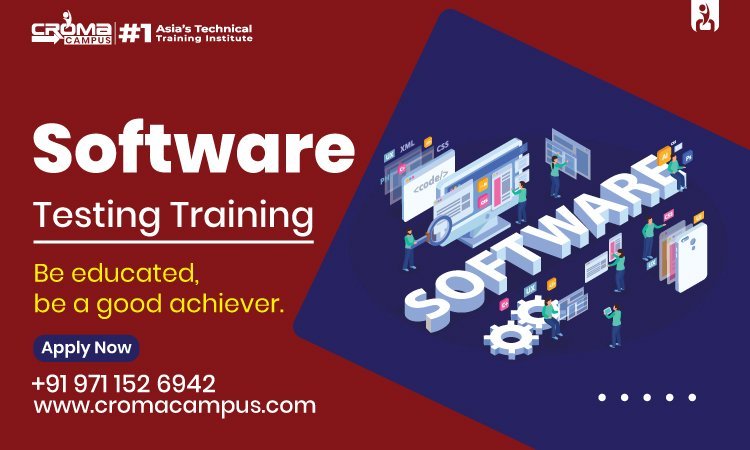Software Testing: Learning To Ensure Quality
Testing courses teach you how to check if software, websites, apps, or systems work correctly and meet the needs of users.

Software Testing is essential for anyone interested in ensuring the quality and reliability of software and systems.
Whether you're new to testing or looking to enhance your skills, these courses provide valuable knowledge and practical experience.
In this article, we'll explore what Testing Courses entail, why they're important, and how they can benefit you, all explained in very easy language with subheaders and pointers to make it simple to understand.
Understanding Testing
Testing courses teach you how to check if software, websites, apps, or systems work correctly and meet the needs of users. Here's why testing is important:
- Finding Problems: Testing helps uncover bugs, errors, or issues in software before they cause problems for users.
- Ensuring Quality: By testing thoroughly, we can ensure that software works as intended, is user-friendly, and meets quality standards.
- Building Trust: Quality software builds trust with users, who rely on it for various tasks, from online shopping to banking and communication.
- Saving Time and Money: Fixing problems early in the development process is cheaper and faster than fixing them after release, making testing cost-effective.
What You'll Learn?
Testing courses cover a range of topics to help you become proficient in testing software and systems. Here's what you can expect to learn:
- Introduction to Testing: Understand the basics of testing, including different types of testing, testing processes, and terminology.
- Manual Testing: Learn how to test software manually by following test cases, executing test scenarios, and documenting defects.
- Automation Testing: Explore automation tools and techniques to automate repetitive testing tasks, saving time and effort.
- Test Case Design: Master the art of creating effective test cases that cover different scenarios and ensure thorough testing coverage.
- Defect Management: Learn how to identify, report, and manage defects effectively using defect-tracking tools and processes.
- Regression Testing: Understand the importance of regression testing to ensure that new changes do not introduce new defects or break existing functionality.
- Performance Testing: Explore performance testing techniques to assess software's speed, responsiveness, and scalability under different conditions.
- Security Testing: Learn how to identify and mitigate security vulnerabilities in software through security testing techniques.
Layout
- Introduction to Software Testing: The course typically begins with an introduction to software testing, covering fundamental concepts, principles, and methodologies. Participants learn about the importance of testing in the software development lifecycle (SDLC), different types of testing, and testing techniques.
- Testing Tools and Technologies: Participants are introduced to popular testing tools and technologies used in the industry, such as Selenium, Appium, JUnit, TestNG, and various test management tools. The course includes hands-on training on these tools, covering installation, configuration, and practical usage for test automation and management.
- Manual Testing Techniques: Manual testing remains a crucial aspect of software testing, particularly in scenarios where automation is not feasible or cost-effective. The course covers manual testing techniques, test case design, test execution, defect reporting, and tracking, equipping participants with essential skills for manual testing.
- Test Automation: Test automation is a key focus area in courses, given its potential to increase the efficiency, coverage, and reliability of testing processes. Participants learn how to design, develop, and execute automated test scripts using scripting languages like Java, Python, or JavaScript, along with automation frameworks and best practices.
- Specialized Testing Domains: Advanced courses may offer specialized tracks or modules focusing on specific testing domains or methodologies, such as performance testing, security testing, mobile testing, or agile testing. Participants can deepen their expertise in a particular area of interest.
Benefits of Enrolling
Enrolling in testing offers several benefits including learning Software Testing Strategies in Software Engineering and enhancing your career and professional development:
- Career Opportunities: Testing skills are in high demand across industries, offering opportunities for careers as testers, quality assurance engineers, test automation engineers, and more.
- Skill Enhancement: Gain valuable skills and knowledge in testing methodologies, tools, and techniques that are essential for ensuring software quality and reliability.
- Industry Recognition: Completing courses from reputable institutes enhances your credibility and demonstrates your expertise in testing to potential employers.
- Flexibility: Many courses offer flexible learning options, including online courses, part-time programs, and self-paced learning, allowing you to balance your studies with other commitments.
- Networking Opportunities: Interact with industry experts, fellow students, and professionals during the course, providing valuable networking opportunities for career growth and knowledge sharing.
Conclusion
In conclusion, courses offer a structured pathway to acquiring essential skills, knowledge, and practical experience in software testing.
By understanding the layouts of such courses and the associated benefits, you can embark on a rewarding journey toward becoming a proficient and sought-after testing professional in the software development industry.
What's Your Reaction?










![Wireless Connectivity Software Market Size, Share | Statistics [2032]](https://handyclassified.com/uploads/images/202404/image_100x75_661f3be896033.jpg)



